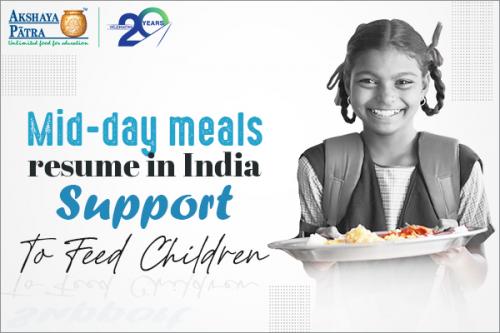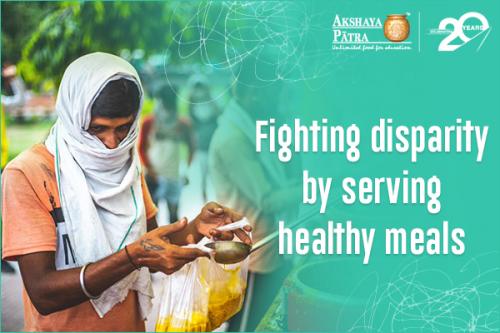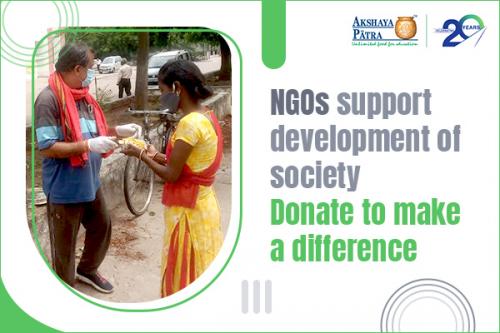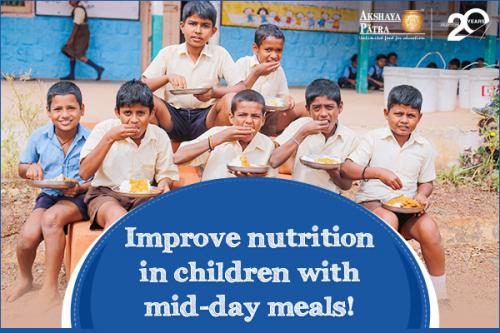Resuming mid-day meals after a long pause

In
2019, there were about 144 million children under the age of five globally, who
were stunted. And, with the COVID-19 pandemic, it is estimated that another 3.4
million children of the same group will be added to the number. Nutrition
deficits and malnutrition of all forms are common in children of the same age. The
immediate impact of school closures during the pandemic has reversed all the
progress made in the field of education. It was important to nourish children
with food. Now that schools have reopened, children will get their vital source
of essential nutrition – the Mid-Day
Meal (MDM) programme.
Content:
Children
were not the first beings to be affected by the pandemic. They might have been away
from directly suffering due to the COVID-19 virus, but they are the ones who
have seen a profound effect on their wellbeing.
In 2020, an estimated 39 billion in-school meals have been
missed during school closures, globally.
Addressing issues of
malnutrition
Many
countries have focussed on addressing short term hunger and not on long-term recovery
from underlying issues. Though the Government of India has taken various steps
to ensure that children’s nutritional needs are addressed right from their
childhood days, the problems of malnourishment, stunted growth and
underdevelopment still exist. Identifying the need and importance of nutrition
right from the mother’s womb, steps like Anganwadi feeding programme, scheme
for adolescent girls under Integrated Child Development Services Scheme (ICDS)
and Pradhan Mantri Matru Vandana Yojana and Mid-Day Meal Scheme which is also
known as the MDM programme, have been taken by the Government of India.
Childhood
is a phase of rapid growth; children outgrow their clothes, experience physical
changes in their bodies, think differently, have a lot of energy and require
the maximum amount of nutrition to keep their bodies functioning at an optimum
level. Eating the right amount of nutrients help them in their overall
development.
 |
According
to the United
Nations, 368.5 million children from 143
countries, who depend on mid-day meals as a daily source of nutrition, will
face malnutrition due to the impact of the COVID-19 pandemic. According to a
survey in 2018, in children between 5 to 9 years, 22% of them do not have the
optimum height for their age (known as stunting), and close to 35% are
underweight.
In
the wake of the pandemic, every week of missed nutrition in children led to a
decrease in their potential for a bright future. As a combined effect of the
lockdown and school closures, there would be a huge number of school dropouts. Food
insecurity during childhood adversely impacts reading, short-term memory and
academic growth. Seeing the huge impact of the lockdown on children due to the absence
of school meals, there was an immediate need to resume the mid-day meal service,
else there would be an increase in the number of child labour incidents, child
exploitation and child abuse.
Even after the
pandemic is long gone, over 200 million children in India will feel the grip of
diminished nutrition that could continue to stay all through their lifetime.
The need to resume the Mid-Day
Meal Programme:
The
MDM programme for school children is a legal privilege in India that followed
the enactment of the National Food Security Act (NFSA) in 2013.
·
Regular consumption of MDM
increases the chances of having an average height and weight.
·
Children require nutritious
meals and learn more effectively and quickly.
·
Children require healthy meals
to enhance their nutritional health.
·
A large number of children who
study in Government and Government-aided schools from low socio-economic
backgrounds were dependent on mid-day meals for having their daily meals.
Akshaya Patra resumes serving
mid-day meals
Since the inception of Akshaya Patra in 2000, it is involved in serving school meals to children studying in Government and Government-aided schools. By preparing nutritious meals to upper and primary school children, the NGO in India aims to address child problems like malnutrition, stunted growth and classroom hunger. After the scare of the pandemic has reduced, as children go back to school eagerly awaiting to meet their friends in a classroom environment, Akshaya Patra has resumed serving mid-day meals. Keeping in mind the nutritional requirements of children, it carefully curates its menu to help in the overall development of children – physical and cognitive.
It
is recognised as the world’s largest NGO-run school meal programme and has been
serving mid-day meals to 1.8 million children (pre-pandemic) every day.
Donate online
to this NGO to ensure that school children receive school meals every day and
that their education is not impacted due to hunger.









Comments